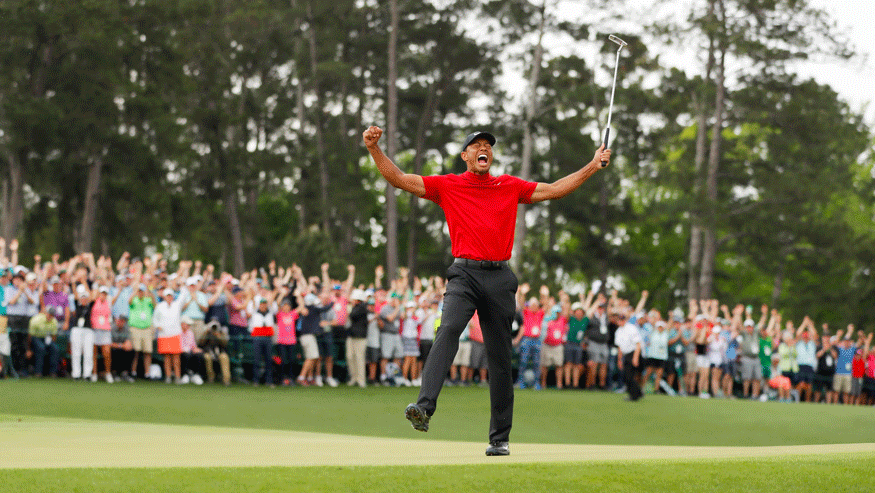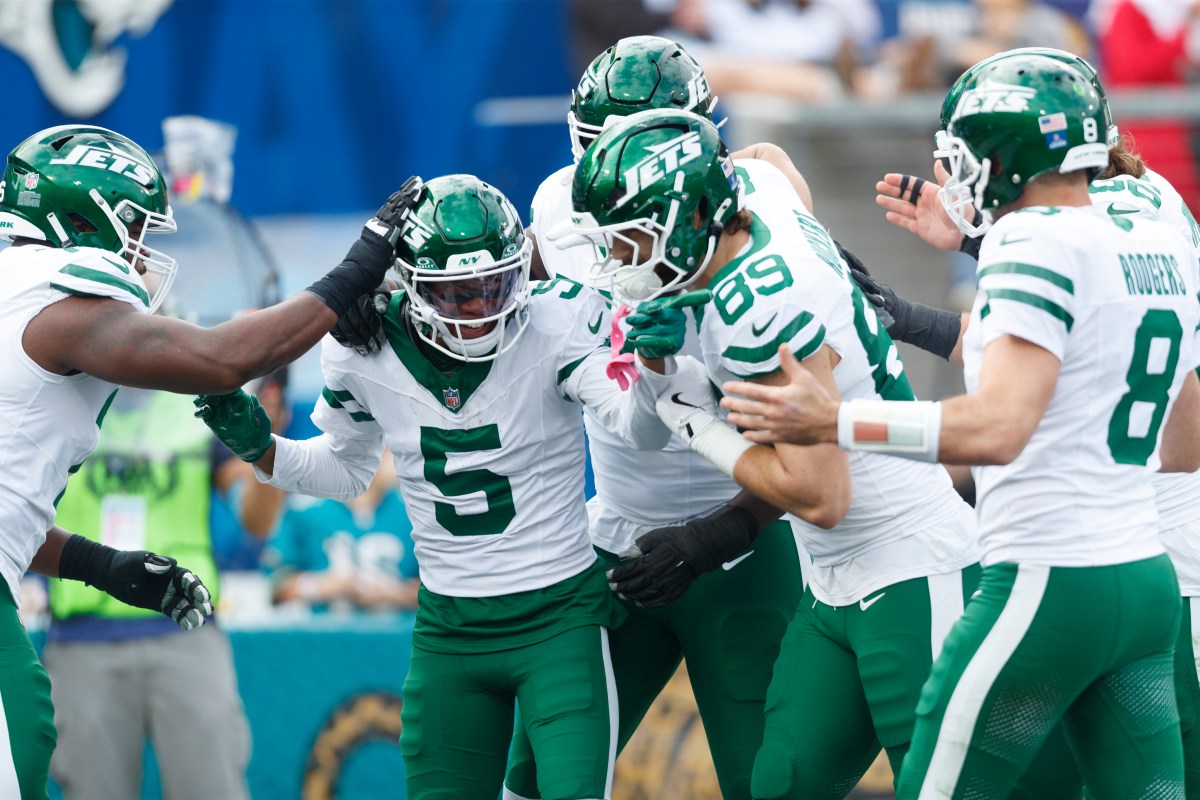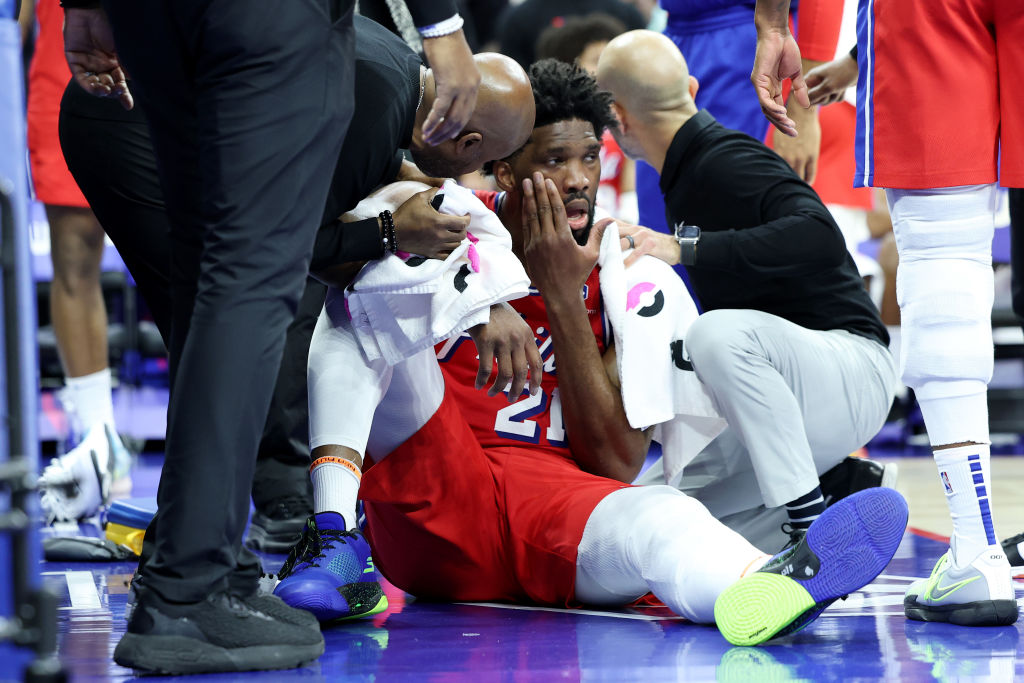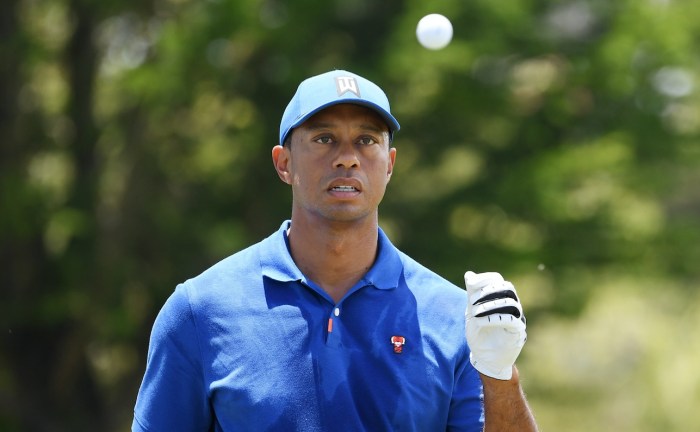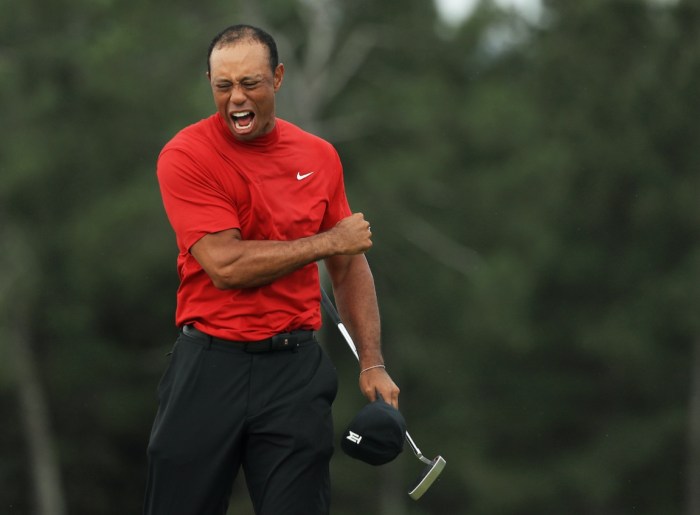The world celebrated Sunday as Tiger Woods secured his fifth Masters and first major title since 2008. Broadcasters palpitated over the 43-year-old golfer’s amazing return from physical ailments, depression and what they gently termed “some personal matters.”
“The world is rooting for this one,” Australian Ian Baker-Finch said at the end. “For Tiger Woods to come back… is a wonderful Cinderella story.”
Maybe, but I preferred the Cinderella story featuring Bill Murray in “Caddyshack.” So allow me to confess: While I was among the millions riveted to my TV Sunday afternoon, I represent the handful who were not cheering for this contrived Tiger Woods redemption story.
You’ll get no argument that Tiger’s accomplishment was outstanding. In terms of all-time sports comebacks, this ranks behind only Muhammad Ali regaining the heavyweight crown after the government stripped it from him at his prime and banned him from boxing for three years.
Woods’ downfall, unlike Ali’s, was largely his own creation. We all remember the story that broke a decade ago with his then-wife, Elin, chasing him down the street with a golf club of her own. Soon the tabloids and early social media exposed Tiger as a serial cheater, and his paramours started emerging from every sand trap.
Tiger’s career spiraled down.
Of course, a pro athlete with a roving eye is far from unique. And, in Tiger’s case, unfaithfulness was a lesson learned straight from his father, Earl Woods. Earl had raised Tiger to be a champion from the very start. But he also raised an automaton who, by all accounts, lacked friends, human decency, and any sort of compassion toward fellow golfers or fans.
“Even the most basic human civilities — a simple hello or thank you — routinely went missing from his vocabulary. A nod was too much to expect,” wrote authors Jeff Benedict and Armen Keteyian in their 2018 bio, “Tiger Woods.”
The book is not a smear job — although it’s rife with stories of coaches, caddies, girlfriends and others whom Woods excised from his life without so much as a handshake. There is a myriad of examples of Woods’ rudeness toward fans. You come away feeling some sympathy for Tiger as the victim of bulldozer parenting — but also dismay that he never grew out of it.
One of the fun aspects of sports is we get to choose who we cheer for. Well, not always. Often, in team sports, our obsession with rooting for the laundry forces us to defend — or at least accept — the guy in green who gets caught up in a 3 a.m. bar fight.
But being a fan in individual sports requires no tribalism. You didn’t have to pull for the guy in the red mock turtleneck Sunday just because every broadcaster and golf columnist declares this the greatest salvation saga of our time.
That’s another oddity about sports (and politics). Winning washes away transgressions. People suddenly develop positive character when they stay out of the rough. And so it was with Tiger on Sunday when the golf world wasn’t just eager to see him win the Masters, but a Nobel Prize as well.
Sorry, I can’t join in this parade. I was rooting for Tony Finau — who finished two behind. Finau once hit an errant ball into the crowd, striking a young girl. That night he showed up at her house with flowers, chocolates and the time to make a new fan. He also funds a foundation to help underprivileged kids in his hometown of Rose Park, UT.
You choose your heroes, I’ll choose mine.

